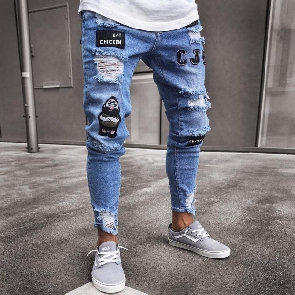The number of times it’s appropriate to wear clothing items without washing them often seems based more on folklore or a person’s upbringing than professional advice.
TikTok user Allison Delperdang started a heated online debate when she posted a video January 10 saying she wears the same pajamas multiple times.
“When I was younger my parents always made us wear pajamas … multiple nights in a row because they weren’t dirty, and I still do that as an adult,” she said. “I need to know if, like, as adults we’re still doing that, or should I be literally making dirty clothes every single night?”
The answer — for pajamas as well as other clothes — technically depends on personal aspects such as sweat level and lifestyle, though for many people other, more abstract factors may come into play, experts say.
Our beliefs about clothing hygiene are largely “societal and cultural,” said Dr. Anthony Rossi, an assistant attending dermatologist at Memorial Sloan Kettering Cancer Center in New York City and a fellow of the American Academy of Dermatology. “People tend to over wash and ‘over hygiene’ themselves, because especially in America, we have a luxury of being able to do all that stuff all the time.”
Rewearing the same clothes — particularly on consecutive days — is “linked to avoiding decision fatigue, hence wearing the same clothes involves less decisions to make and less stress every morning,” said Manal Mohammed, senior lecturer of medical microbiology at the University of Westminster in London.
Not knowing when to wash your clothes can have consequences on both ends of the spectrum. Washing them too seldom could lead to skin problems or infections, and washing them too often could harm your clothing. The latter can also result in unnecessary laundry and use of resources.
Here are some guiding principles to help you determine when a garment can be worn again without washing and when it’s time to toss it in the hamper.
The universal rule: What you must wash
There’s no hard and fast rule for how many times you can wear clothing again, but experts say there are a few types that should be washed after every use: underwear, socks, tights, leggings and activewear. This advice also applies to any other clothes with stains, sweat, odor or visible dirt, Mohammed said.
These kinds of clothes are “on a part of our body that just has a lot of natural bacteria that lives on our body, like our microbiome, (yeast) and bacteria,” Rossi said. “Then from day-to-day activities, we sweat. That just breeds moisture and an environment where this bacteria can overgrow.”
Bacteria overgrowth can lead to infections, fungus and other skin issues, he added.
In addition to bacteria from sweat, clothes worn in gyms or sports settings can come into contact with bacteria such as Staphylococcus aureus, resulting in infections common in community and hospital settings. Those infections can become serious if they enter internal tissues or the bloodstream.
Some people might let their workout clothes dry via air or a dryer, intending to make them safe to wear again the next day. But that approach makes the situation worse, Rossi said.
“Heat is going to make the bacteria grow. It’s not hot enough to sterilize them,” he said. “It’s really the washing with soap and water (that you need) — and with hot water, especially, because it’s going to help loosen that dirt and sebum and really get rid of bacteria.”
When it comes to why you shouldn’t wear socks again without washing first, “fungal infections on the feet and toes are just rampant,” said dermatologist Dr. Jeremy Fenton, medical director for Schweiger Dermatology Group in New York City and a clinical instructor of dermatology at Mount Sinai Hospital. “Inside of our shoes is the perfect environment for breeding fungus. It’s warm, it’s humid, it’s dark.”
Because of that, you should wash your shoes or at least the insoles in a washing machine at least once per month, Rossi said.
Clothes you can rewear
For pajamas, outerwear, jeans and other clothes, how many times you can wear them without washing is based on the same principles for undergarments or activewear.
“As far as your pants and your shirts, I think it’s all a level of comfort and how much you’re perspiring throughout the day,” Rossi said. “A lot of people wear undershirts. The undershirt would be something to wash, whereas your top shirt you don’t really need to wash.”
If you don’t wear underwear, you need to wash your clothing before wearing it again since it came into contact with your genital skin, Rossi said.
A climate-conscious guide to washing your clothes safely
If you usually shower before bed, wear underwear and sweat little to none when wearing pajamas, you could wear them for a week without washing, experts said. But if you don’t do these things, you’d need to wash them every time.
Outerwear — such as coats or jackets — typically doesn’t need to be washed more than once a month since it doesn’t touch your skin, Rossi said. “If you’re wearing it every day, probably (wash it) every two weeks,” he suggested.
Whether and how often to wash jeans can be a hot topic, since many people want to maintain the integrity of the fabric, which is usually stiffer and more durable than others. If jeans aren’t sweaty, dirty or stained, they don’t have to be washed often, Rossi said. “I personally don’t wash my jeans,” he added.
Mohammed recommended washing jeans monthly but acknowledged it depends on your lifestyle and environment.
“If somebody were to tell me that they were wearing their jeans for months on end and not washing them and they hadn’t had any problems with their skin or problems with odor, I wouldn’t see any problem at all,” Fenton said.
The most important questions you should ask yourself, experts say, when considering whether to wear something again without washing are these: Does it smell? Do I have any skin conditions, such as eczema, a rash or a skin lesion? Is it visibly dirty? Is it sweaty? Did I wear underwear with this?
“The main point is that the answer is going to be very variable,” Fenton said.
LifeStyle of Friday, 21 April 2023
Source: edition.cnn.com













